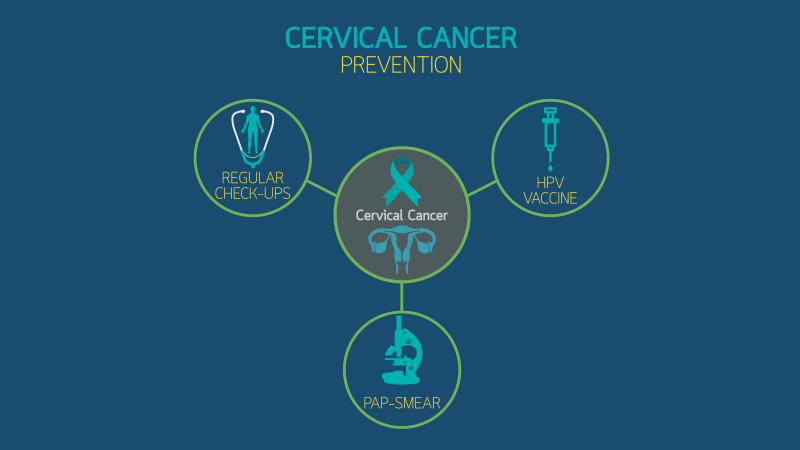
What better way to begin the year 2023 than by spreading awareness about Cervical Cancer and dedicating the entire month of January to it ? But first, it is important to know about Cervical Cancer’s causes and symptoms.
Cervical cancer affects the cervix region & is caused due to the abnormal growth of cells in the lower part of the uterus. Majorly, cervical cancer is caused due to the transfer of the Human Papilloma Virus (HPV), during sex. Before the onset of Cervical Cancer, there are often occurrences of the pre-cancerous lesion in the cervical region. Cervical cells gradually undergo abnormal changes that are called precancerous changes.
The common symptoms of Cervical Cancer include:
Apart from breast cancer, cervical cancer is most common in women over the age of 30. This is why screening for Cervical Cancer is the most essential part of its proper treatment.
It is said that Long-lasting infection with certain types of human papillomavirus (HPV) is the main cause of cervical cancer which if not urgently treated leads to malignant tumours.
Here are a few other risk factors for Cervical Cancer:
Statistically speaking at least half of sexually active people are prone to have HPV during their life but a slim minority of them will suffer from Cervical cancer.
In India, Cervical Cancer is the second most common malignancy in women and 1 woman dies of it every 8 minutes, including in Gujarat. To reduce the incidents of this deadly cancer, we need to strengthen our efforts in the fight against cancer, especially when compared to our Western counterparts. Cervical cancer specialists advise that any abnormality in the cervix should be taken seriously.
Cervical cancer is treatable if symptoms are detected early and with proper diagnosis and treatment. Treatment methods include vaccine surgery, radiation and chemotherapy Methods.
Cervical cancer vaccines are used for protection against HPV infection and to reduce the occurrence of high-grade, full-blown cervical diseases.
In many milestone studies, researchers have confirmed that widespread use of the human papillomavirus (HPV) vaccine dramatically reduces the number of women who will develop cervical cancer. The most common side effects of HPV vaccines include soreness, swelling or redness at the injection site.
A Pap test or Pap smear is commonly used as a cervical screening method to detect early Stage, pre-cancer cervical cell changes that may be benign but can lead to malignancy.
The test which may also be combined with the HPV test involves cell sample collection paired with gynaecological check-ups as well. Although safe, mild to intense cramping is experienced during the Pap test and pretty much has no other side effects.
Annual Pap test, with HPV tests every three years, is one of the best prevention methods for early-stage cervical cancer, where treatment is available and potent.
VIA is a naked-eye test that can be done with a few tools and chemicals. The cervical abnormalities are examined after the application of a specific liquid solution. Studies conclude that VIA by trained female health workers is a safe, acceptable, and effective test that can save lives from cervical cancer, even in remote areas with few resources.
1. Not Smoking frequently
2. Using sexual prophylactics and
3. Limiting exposure to those with HPV infection as well
In addition to these methods, it is vital to be aware of cervical cancer signs and get regularly consulted by your family physician or a certified Gynaecologist.
Cervical Cancer in its early stage is treatable and curable.
- Early stage Cervical Cancer treatment includes
In case of later-stage detection, the treatment includes
- radiation therapy with chemotherapy.
In advanced stages, chemotherapy is used.
KD Hospital gynaecology services
For effective, trustworthy and safe treatment-oriented cervical cancer consultation or cervix-related screening reach out to KD Hospital:
by Phone +91 79 6677 0000
or Email at contact@kdhospital.co.in